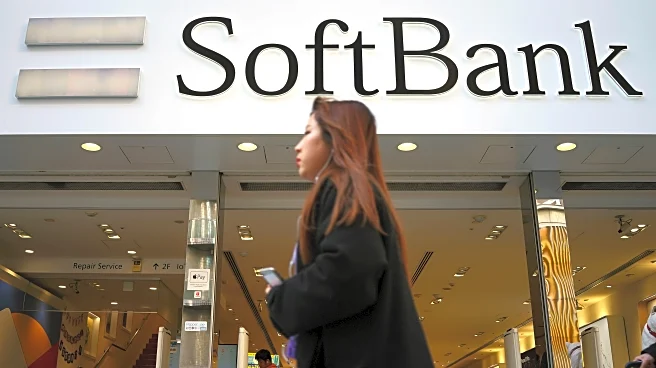What's Happening?
The retail sector is experiencing significant challenges due to the delayed impact of cost-push inflation, which has reshaped profit margins and consumer behavior over the past five years. Initially, retailers absorbed rising costs from tariffs, wages, and commodity prices by compressing profit margins, delaying price hikes to maintain customer loyalty. However, this strategy proved unsustainable, leading to a substantial increase in corporate profits contributing to price-level increases. By 2024, corporate profits accounted for over 40% of the price-level increase since 2019, far exceeding historical averages. This inflationary pressure is particularly evident in grocery retail, where input costs have outpaced revenue growth, resulting in reduced investment and job cuts. As inflation persists, consumer behavior has shifted towards prioritizing affordability, driving a surge in private-label product adoption, which now accounts for 21.7% of U.S. retail sales.
Why It's Important?
The delayed impact of inflation on the retail sector has significant implications for U.S. industries and consumers. Retailers are forced to adapt strategically to maintain margins and customer loyalty amidst rising costs. The shift towards private-label products highlights changing consumer preferences, emphasizing affordability and quality. This trend benefits retailers like Walmart and Kroger, who have expanded their private-label portfolios to capture market share. The strategic adaptations in supply chains, such as Walmart's diversification and AI-driven optimization, demonstrate the importance of agility in navigating inflationary pressures. These developments affect investment opportunities, with companies that leverage inflation to redefine business models standing to benefit. The structural effects of inflation on retail will continue to influence consumer behavior and industry strategies.
What's Next?
Retailers are expected to continue adapting to inflationary pressures through strategic innovations and supply chain diversification. The focus on private-label expansion and supply chain resilience will likely persist as key strategies for maintaining margins and customer loyalty. As consumers prioritize essentials over discretionary spending, retailers focused on groceries, household goods, and health products may gain traction. The Federal Reserve's PCE price index indicates a potential waning of high inflation, but its structural effects on retail will linger. Investors may focus on companies that embrace agility and innovation, supporting those that have adapted through private-label expansion and supply chain resilience.
Beyond the Headlines
The shift towards private-label products and strategic supply chain adaptations reflects broader economic and cultural shifts in consumer behavior and industry practices. The emphasis on affordability and quality in private-label offerings suggests a long-term change in consumer priorities. Retailers' focus on supply chain resilience and technological innovation highlights the importance of agility in navigating economic challenges. These developments may influence broader industry trends, including investment strategies and consumer loyalty programs. The structural effects of inflation on retail could lead to lasting changes in business models and consumer expectations.










